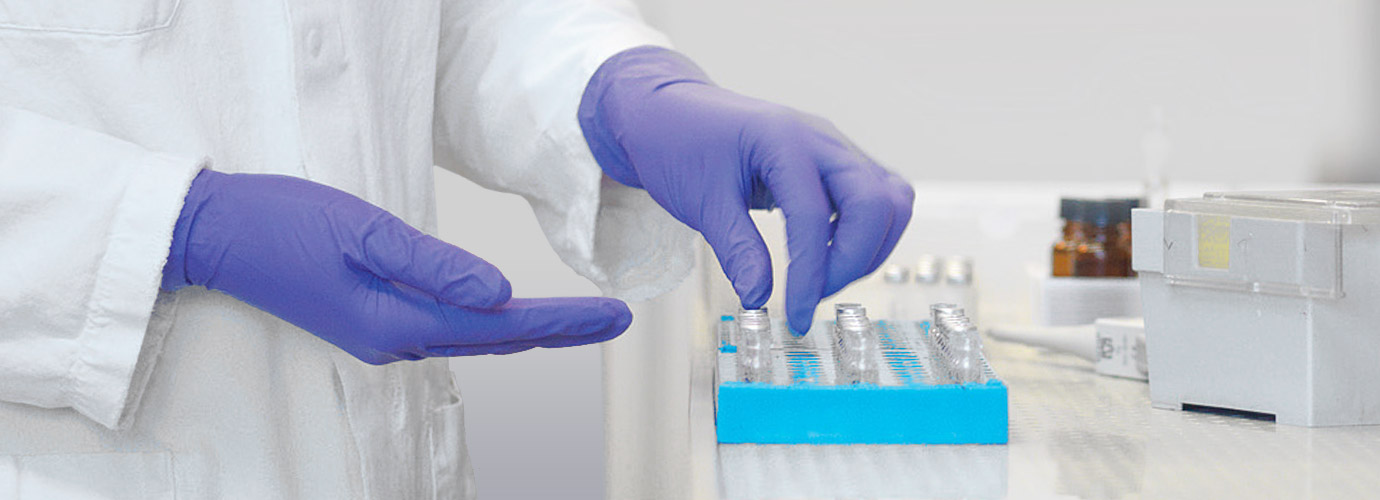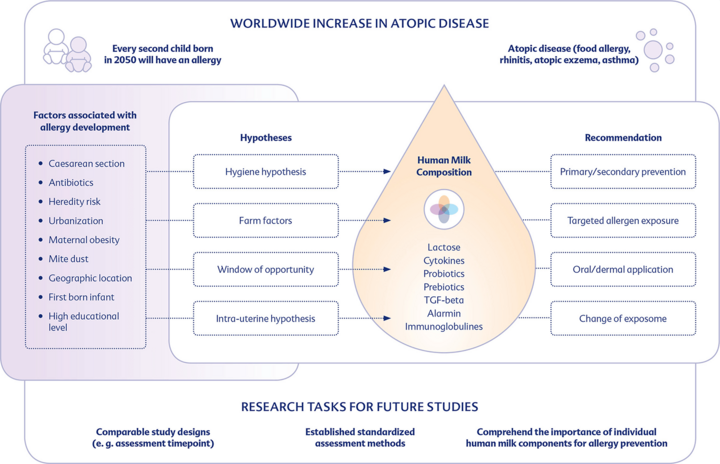Avenues to Allergy Prevention in the Neonate
New publications of the workshop in the World Allergy Organization Journal
01.2022
There is a steady increase in food allergy prevalence around the world. This is why it is important to find new and effective ways to prevent the development of asthma and other atopic diseases. This is only possible once we understand how the human body, environmental influences and the development of atopic diseases are linked together. There are various hypotheses attempting to explain the increase in atopic diseases (see Fig. 1).
The neonatal period is identified as a key window of opportunity, as this is the time where the immune system is formed and the course is set for susceptibility to disease later in life. A key factor in the maturation of the immune system is human milk as its components influence tolerance induction and the intestinal microbiota. Human milk is the most natural way to feed an infant. It consists of a wide variety of components, including immunoglobulins, cytokines and prebiotics, which have been shown to be important for allergy prevention. Among other things, they support the microbial colonisation of the intestine. Environmental factors can have a particularly negative influence on the intestinal microbiome, thereby increasing the risk of developing food allergies or other allergies. These environmental influences include air pollutants, water pollution and factors related to the western lifestyle.
References:
Annesi-Maesano et al. Allergic diseases in infancy: I - Epidemiology and current Interpretation. World Allergy Organization Journal (2021) 14 (11):100591 http://doi.org/10.1016/j.waojou.2021.100591
Hornef et al. Allergic diseases in infancy II–oral tolerance and its failure. World Allergy Organization Journal (2021) 14 (11):100586
http://doi.org/10.1016/j.waojou.2021.100586
8th Workshop Report 2020
29.07.2020
Current research is investigating the health benefits of human milk and its preventative role in allergy. Based on numerous studies, food allergy affects up to 10% of children in developed countries and is one of the most common diseases in childhood, with evidence indicating an increase in prevalence. Thus, effective primary allergy prevention strategies are important steps to influence positively the infant’s 'early window of opportunity'.
Among others, breastfeeding has been suggested as an optimal tool to prevent allergy although evidence is inconsistent. Nutritional and non-nutritional interventions can be used for primary prevention of allergic diseases. For instance, farm life has been shown to effectively protect children. Imbalances in the microbiome profiles are believed to impair the immune system maturation and thereby increase the risk of allergic diseases. These changes may occur as a result of environmental factors typical of the western lifestyle or different food components which are thought to be responsible for the pandemic of allergic diseases, like food allergy.
Read the report in full text:
Insert in "Monatsschrift Kinderheilkunde" Volume 168, Issue 8, Aug 2020
Content
- A global increase in food allergy
- Environmental factors modify the microbiota and allergy risk
- Allergy protection through human milk
- Asthma prevention
- Hygiene hypothesis
- Biodiversity hypothesis
- Mechanisms of tolerance induction in the neonate
- Farm children have a lower allergy risk



